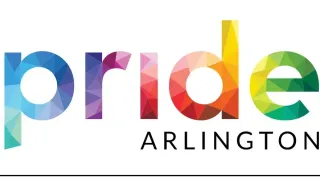
4 hours ago
Connecticut Families Sue Hospitals Over Abrupt End to Transgender Youth Care
READ TIME: 3 MIN.
A group of Connecticut families has filed a federal lawsuit alleging that two major hospital systems abruptly stopped providing gender-affirming hormone care to transgender adolescents and young adults, despite earlier assurances that treatment would continue. According to the complaint, the decision affected at least 10 transgender patients who had already been evaluated for gender dysphoria and were receiving or expecting to receive medically recommended care through clinics affiliated with Yale New Haven Health and Hartford HealthCare.
The discrimination complaints, filed with a state commission, argue that cutting off this care violates state anti-discrimination laws and Section 1557 of the Affordable Care Act, which prohibits discrimination on the basis of sex, including gender identity, in federally funded health programs.
GLBTQ Legal Advocates & Defenders and co-counsel filed the complaint on behalf of families who say their transgender children experienced sudden cancellations of appointments, denials of prescription refills, or refusals to initiate hormone therapy, with little or no clinical justification provided. The Connecticut Post reports that families were told that hospital leadership had decided to end gender-affirming hormone care for patients under 18, and in some cases for young adults up to age 25, even when clinicians had already agreed that treatment was appropriate.
One mother described in the complaint that her 16‑year‑old transgender daughter had been approved to start hormone therapy after a lengthy evaluation process, only to be informed that the program would no longer prescribe hormones for minors. According to coverage by News 12, families say they were not provided with alternative, comparable care options within the same hospital systems.
The complaint alleges that these sudden changes have caused emotional distress, increased anxiety, and fear of regression in social transition for the affected transgender young people, who had come to rely on continuity of gender-affirming care.
Connecticut law explicitly prohibits discrimination based on gender identity or expression in health care and other public accommodations, and the state has positioned itself as a jurisdiction that protects access to gender-affirming care. State officials have recently reiterated that such care remains legal and protected in Connecticut, even as some national political figures call for broad restrictions.
In response to a separate national proposal from former President Donald Trump to restrict gender-affirming care, Connecticut Attorney General William Tong stated that “gender affirming care remains legal and protected in Connecticut” and condemned efforts to limit this care as part of a “cruel political agenda.” Advocates cite these state protections to argue that hospital decisions to curtail services for transgender youth are inconsistent with Connecticut’s own legal framework.
Yale New Haven Health and Hartford HealthCare declined to comment in detail on pending litigation when contacted by reporters, but indicated through statements that they remain committed to providing care consistent with medical standards and applicable law. The lawsuit does not allege that individual clinicians independently chose to stop care; instead, it attributes the change to higher‑level institutional decisions.
Advocacy organizations describe the Connecticut case as part of a broader national pattern in which hospitals and clinics reduce or withdraw gender-affirming services in response to political pressure, legal uncertainty, or threats, even in states where such care remains lawful. GLAD notes that major medical associations, including the American Academy of Pediatrics and the American Medical Association, have issued policy statements supporting evidence-based gender-affirming care for transgender youth when provided under established clinical guidelines.
LGBTQ+ advocates in Connecticut say the lawsuit underscores the importance of treating gender-affirming care for transgender adolescents as essential health care rather than a political issue. According to GLAD, the families are seeking an injunction requiring the hospitals to resume or continue medically necessary hormone treatments for eligible transgender patients, as well as declarations that the abrupt termination of care was discriminatory.
Local and national LGBTQ+ organizations are monitoring the case closely because its outcome could influence how other hospital systems in supportive states approach care for transgender people amid shifting national politics. The litigation highlights ongoing tension between formal legal protections at the state level and practical access to care on the ground, particularly for transgender youth who rely on large health systems for specialized services.
Advocates emphasize that transgender young people and their families seeking information about gender-affirming care in Connecticut can consult organizations such as GLBTQ Legal Advocates & Defenders and local LGBTQ+ community centers for legal and referral support while the case proceeds.






